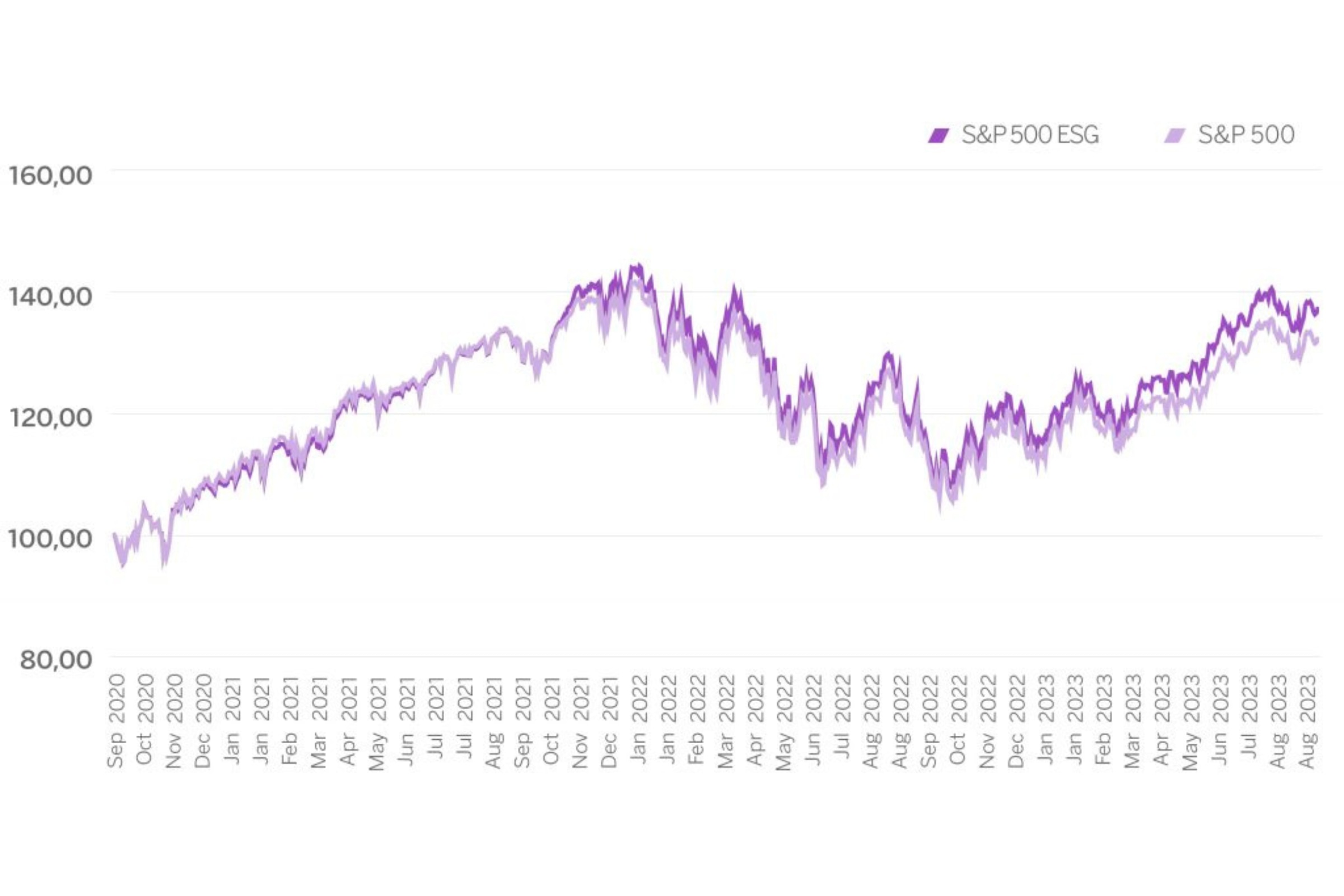Sustainable investment is an alternative that allows investors to earn money and fight against climate change and social inequality. At the end of 2022, the market for investment with ESG criteria (Environmental, Social and Governance) totaled $2.5 trillion. And it continues to grow.
Can you imagine making your investments profitable while helping to improve the planet? That is the goal of sustainable investment, better known as ESG investment. ESG is the acronym for Environment, Social and Governance. This investment method has not stopped growing thanks to its objectives and good returns. Here, we give you the lowdown on this market, which is already worth 2.5 trillion dollars.
ESG investment considers environmental, social and governance aspects when selecting financial assets, marking a change. Investors, mainly institutional, choose companies that reduce their carbon footprint, encourage social integration or promote gender equality. This may exclude industries such as weapons or tobacco.
The global goal of achieving zero carbon emissions by 2050 requires a massive investment: estimated at $9.2 trillion a year, according to the consultancy firm McKinsey. ESG investment seeks to attract private capital to finance this transition to sustainability and meet climate objectives both in Europe and in emerging countries.
An investment that continues to grow
Investment under these sustainable criteria is difficult to analyze globally, due to the lack of regulation in most territories. Nevertheless, according to Morningstar, a financial services provider, global assets in sustainable funds reached 2.5 trillion dollars at the end of December 2022. Until the end of the second quarter of 2023, capital inflows to this investment style increased by $18 billion worldwide.
Another important figure was noted by Bank of America, which highlights that up to February 2023, investment in debt funds with environmental, social and governance criteria has reached $244 billion, setting a historic record. This is a particularly interesting figure, since it is the most conservative fixed-income market and reluctant to change.
Is this investment style profitable?
People might think that investing in sustainability is not profitable. Nothing could be further from the truth. In terms of returns, ESG equity funds achieved a gross average return (before fees) of 3.3%, in contrast to 0.8% of comparable conventional funds from January 2019 and December 2021, according to the European Securities and Markets Authority (ESMA). In the In the United States, the JULCD, the JUST Capital market index that tracks the performance of large public companies with high ESG scores, beat the Russell 1000 market index in 2017, 2018 and 2019.
Finally, according to the Barcelona School of Management, more than half of studies indicate that companies that invest in ESG are experiencing an improvement in profitability by reducing risks and increasing the value of investment thanks to responsible management. Other studies, however, do not show a clear or positive relationship between investment in ESG and profitability.
Sustainable megatrends: where is green money heading?
Sustainable investment has a number of trends, some more relevant than others. The main one, as indicated by different management firms - Abrdn, Capital Group or Natixis - undoubtedly relates to energy. Not only in the promotion of renewable energies, but also European countries' need to ensure greater energy independence. In fact, this point includes opportunities for investment in energy efficiency - companies that achieve more with less consumption - new sources such as hydrogen, energy storage and even nuclear energy.
Whilst energy is the most obvious and well-known trend, there are others that are equally important. The management firm AXA IM points out biodiversity as a trend. Although vague, it offers opportunities in companies focused on collecting ocean plastics for recycling, managing water more effectively or even in companies that propose solutions to capture CO2 and reuse it as a source of energy.
In social matters, diversity is worthy of attention. Reports by Credit Suisse, Exane and Morgan Stanley show a positive correlation between employee diversity and the performance of the company's shares. Studies by McKinsey and BCG also show that diverse management teams are more likely to have better performance in returns and value creation. For this reason, management firms are looking for companies that have a diversity plan and meet certain standards.
We are faced with a new market - or investment philosophy - that is growing and which presents great opportunities for investors, both in terms of profitability and value.
The best of both worlds
All your operational needs in one place. Invest in both traditional and digital assets with the backing and experience of the most secure Swiss banking.
A commitment for retail investors
ETFs (exchange-traded funds) have become one of the preferred investment options for retail investors. They are cheaper than funds and an easy way to diversify a portfolio. Therefore, ETFs with ESG criteria have also opened up the market, exceeding 249 billion euros under management at the start of 2023 in Europe. In fact, in the last five years, flows towards ESG strategies increased by 40% annually. In Europe in 2022, 65% of net ETF flows were allocated to ESG options.
Comparison of the impact of the S&P 500 ESG and S&P 500 indexes


